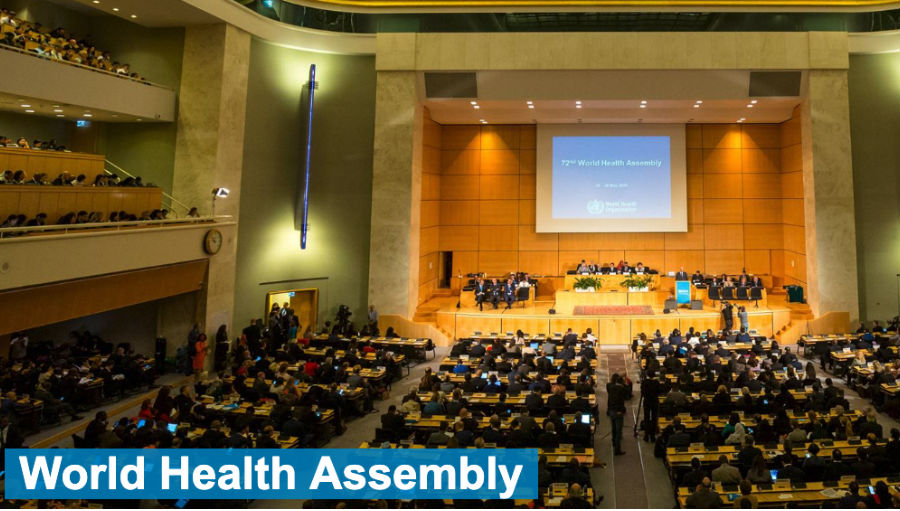By Haruna Gimba
At the 75th World Health Assembly, delegates discussed progress made on the Strategic Action Plan on Polio Transition and reiterated their support for the way forward towards stronger, more resilient health systems.
The session on polio transition planning and polio post-certification took place against a backdrop of efforts to bolster essential immunization following COVID-19 and strengthen health systems to respond to outbreaks.
Polio transition, which aims to repurpose the polio network and assets for wider public health, is a key tool to sustain vital capacity in polio-free countries to strengthen national health systems.
At the start of 2022, in a major step forward towards integrated health systems, over fifty polio-free countries transitioned from Global Polio Eradication Initiative support.
WHO continues to provide technical assistance to these countries to sustain polio gains and to assist progress on broader health priorities, especially essential immunization, disease surveillance, emergency preparedness and response and primary health care.
Member State interventions emphasised the importance of continued close collaboration between the WHO and its partners to ensure that eradication and transition go hand in hand.
Dr Tedros Adhanom Ghebreyesus, WHO Director-General, underlined this during his address to the Assembly, stating, “Over fifty countries have transitioned out of the support of the Global Polio Eradication Initiative.
“We have proven that eradication and transition can, and must, go hand in hand. Each of us have a challenge ahead, for countries that are now polio-free, it is crucial to accelerate efforts to use the polio assets and infrastructure to build stronger and more resilient health systems.”
Member States praised efforts to integrate polio eradication with other public health efforts, including thorough innovative approaches such as the introduction of Integrated Public Health Teams.
Member States also emphasized the need to integrate and sustain sensitive surveillance systems for polio and other vaccine-preventable diseases, and strengthen essential immunization to reach under or un-immunized children.
Dr Matshidiso Moeti, WHO Regional Director for Africa, noted, “The transition from polio to integrated public health has been initiated, with core surveillance capacities being maintained in all our countries.”
The World Health Assembly also took note of the Mid-Term Evaluation of the Strategic Action Plan on Polio Transition.
The WHO’s management response to the Mid-Term Evaluation will help pave the way for the next chapter, by making the necessary adjustments to implement transition effectively in a changed public health context following the COVID-19 pandemic.
The Director-General and Regional Directors concluded their statements with a call to action. The passing of a resolution on the sustainable financing of WHO earlier in the World Health Assembly marks an important step towards retaining polio assets.
Nonetheless, concerted efforts are needed to ensure that these essential functions can be sustained in the long-term, through predicable donor and domestic financing.
Dr Matshidiso Moeti, WHO Regional Director for Africa stated, “This is a critical year for transition, and I urge Member States to step up their efforts, including through political commitment and domestic funding.
We have a collective opportunity and responsibility to leverage the polio gains for integrated public health.”
WHO Regional Director for the Eastern Mediterranean, Dr Ahmed Al-Mandhari said, “We urge Member States to support this integration, mobilize resources, and ensure national ownership and sustainable domestic financing to fast-track polio transition. It is only through collective action and accountability at the national, regional and global levels that we will succeed.”
The Director-General Dr Tedros emphasised the importance of continued commitment to sustain the polio functions. “For all partners and donors, please help us seize the moment to raise predictable funding for eradication and transition.”


